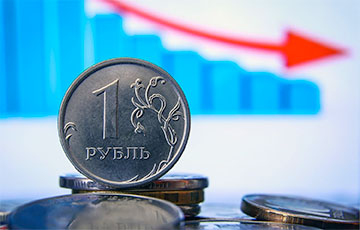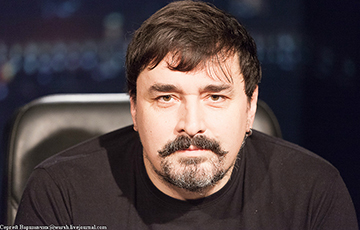Russia May Be Left Without The National Welfare Fund
6- 9.06.2025, 18:52
- 6,836

As early as 2026.
The liquid assets of the National Welfare Fund may be completely exhausted in 2026 if oil prices remain low and the ruble remains strong. This forecast is given by economists from the Russian Academy of National Economy and Public Administration and the Gaidar Institute in a report on the execution of the federal budget-2025, writes The Moscow Times.
As of June 1, the National Welfare Fund, which has been saved up for years at the expense of the budget's commodity surplus, had 2.8 trillion rubles of unspent money - the minimum amount since 2019. In 2022-24, the government's "coffers" more than doubled in ruble terms and tripled in dollar terms (from $113.5 billion to $37.4 billion). In 2025, the Finance Ministry spent another 35.9 billion rubles from the National Wealth Fund to cover the budget deficit in May, as well as 532 billion rubles for injections into state corporations and megaprojects.
In particular, 300 billion rubles were given to state banks for the Moscow-St. Petersburg High-Speed Railway project, 6.5 billion rubles to the State Transport Leasing Company for the purchase of airplanes, and 1 billion rubles to VEB for the purchase of trains for the St. Petersburg metro. The Ministry of Finance allocated another 50 billion rubles for secret projects, which it preferred not to name publicly.
As a result: the fund has only 153.7 billion yuan of foreign currency assets - the minimum since its creation in 2008. The gold reserves in the NWF have dropped to 139.5 tons, although before the war they exceeded 400 tons.
The liquid assets remaining in the NWF allow the Finance Ministry to compensate for the falling oil and gas revenues of the budget, but in case of a prolonged drop in oil prices and a strengthening ruble, this reserve may be used up within one year, warns Ilya Sokolov, head of the Budget Policy Research Laboratory at the Russian Academy of National Economy and Public Administration Ilya Sokolov.
The Finance Ministry initially planned to switch to accumulating the National Wealth Fund this year to replenish the reserves used up during the three years of the war. But the sharp drop in oil prices has confused the officials of the government's financial bloc: Urals oil has fallen to $52 instead of the budgeted $69.7, forcing the government to revise the budget. Now it expects oil and gas revenues to amount to Br8.3 trillion instead of Br10.9 trillion, the deficit of the treasury will be three times higher than planned (Br3.8 trillion), and the National Wealth Fund will have to be spent again: withdrawals of Br447 billion are planned.
To preserve the fund's balances, the Finance Ministry is considering the possibility of forced cuts in budget expenditures next year, a Bloomberg source said in May. According to the source, the government is considering a reform of the budget rule - the mechanism under which the money of the National Welfare Fund is spent. Now the Ministry of Finance "prints out" the NWF to cover falling oil and gas revenues, if the price of Urals oil falls below $60 per barrel. From next year, this "cut-off point" may be lowered to $50. And this could mean the need to cut budget spending by 1.5-1.6 trillion rubles, or 0.7% of GDP, estimated Natalia Orlova, chief economist at Alfa Bank.
According to the Ministry of Finance, in January-April of this year, oil and gas revenues of the budget sagged by 10%, while in May the decline reached 34%.
To make ends meet in the budget, the authorities could devalue the ruble, but this would accelerate inflation, Sokolov of the Russian Academy of National Economy and Public Administration writes. The Finance Ministry expects to fill the treasury with non-oil and gas revenues, but these expectations may not come true, the expert continues: the plan for business profit tax is 4 trillion rubles for the year, but profits in the economy are falling - by 34%, according to Rosstat data as of March.
"Failure to receive the planned volumes of profit tax revenues in 2025 is no less important and more realistic risk for the Russian budget than the increased probability of falling oil and gas revenues," Sokolov concludes.











